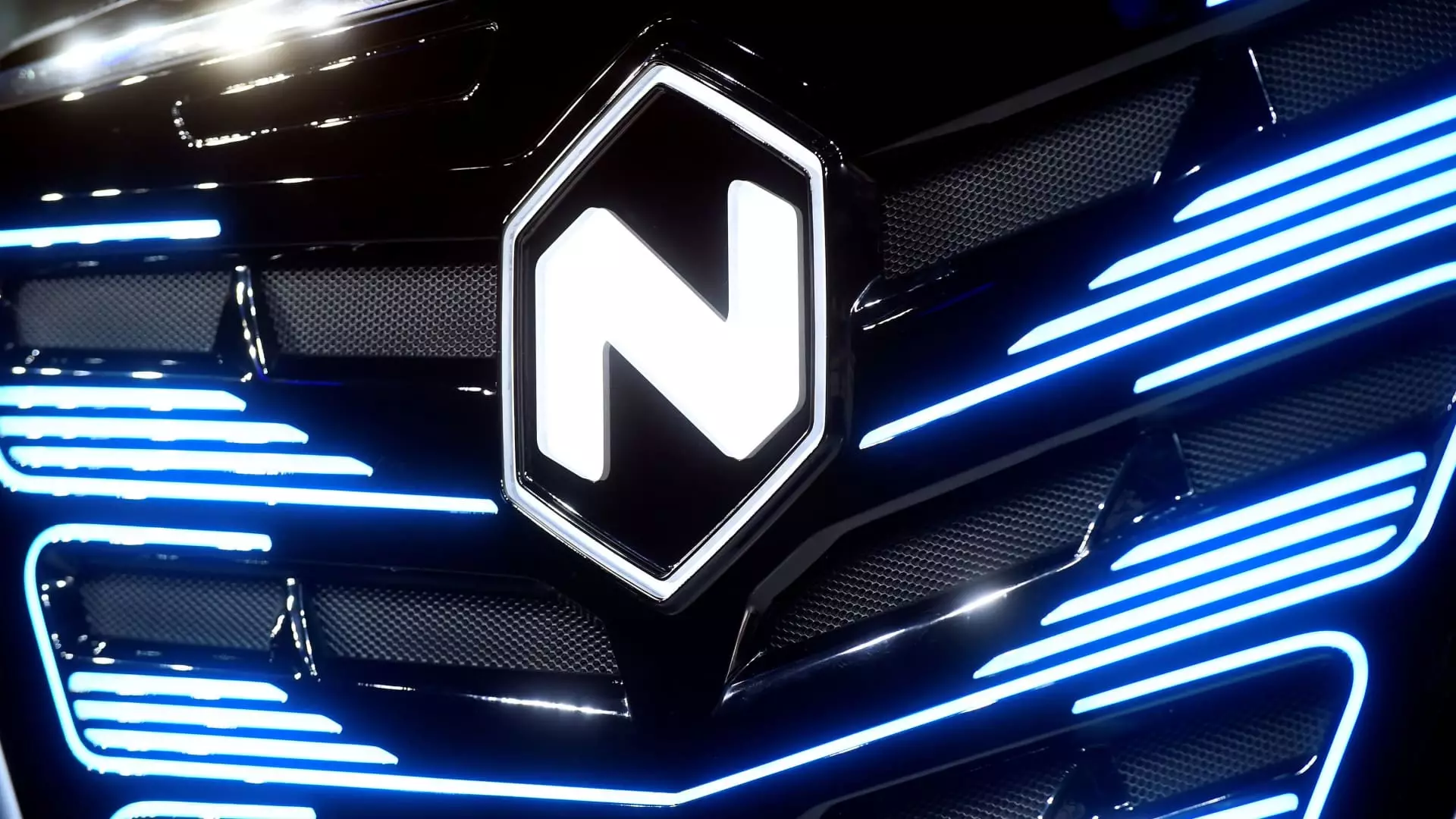Nikola Corp, once heralded as a game-changing entity in the electric vehicle (EV) sector, has recently filed for bankruptcy protection, marking the end of an ambitious journey that encapsulated both the excitement and the volatility of the auto startup world. At its zenith, Nikola was valued at an astounding $30 billion in 2020, overshadowing established automotive giants such as Ford Motor Company. The hype surrounding Nikola was underpinned by its initial intentions to innovate the automotive landscape focusing on zero-emission technology through all-electric and fuel cell electric vehicles.
In what was seen as a strategic alliance, Nikola secured a multibillion-dollar partnership with General Motors (GM), which fueled optimism about its prospects. Investors were eager to buy into Nikola’s vision during this period, buying up shares as the company was set to go public through a reverse merger with a special purpose acquisition company (SPAC). The trajectory appeared promising, with the startup enjoying a wave of enthusiasm within financial markets as discussions of sustainability and green technologies took center stage.
The Slippery Slope of Scandal
However, the initial promise began to tarnish as controversies unfolded, primarily centered around its founder and former CEO, Trevor Milton. Allegations of fraud and misinformation plagued the company’s reputation when Hindenburg Research released a damning report accusing Milton of misleading investors about Nikola’s technological capabilities and operational realities. These revelations not only triggered a decline in stock value but also prompted investigations, casting a long shadow over the company that had once captured the public imagination.
Milton’s eventual conviction for wire fraud and securities fraud in 2022 marked a pivotal moment in the company’s narrative. While he was seen as a charismatic leader during the company’s rise, the fallout from these scandals propelled Nikola into a quagmire of legal and financial hurdles. The trust that had been built during the company’s early days evaporated rapidly, leaving a damaged brand struggling to regain its footing.
In a recent announcement, Nikola’s current CEO, Steve Girsky, disclosed that despite their best efforts to keep the company afloat, they were unable to secure additional funding or find a buyer for its assets, ultimately leading to their decision to file for Chapter 11 bankruptcy. The company has confirmed it possesses approximately $47 million in cash to navigate the bankruptcy proceedings, a precarious situation that showcases its dire financial state.
The market conditions that Nikola faces are not unique to the company; the broader electric vehicle industry has seen turbulence with many startups facing similar challenges, including capital constraints and operational inefficiencies. As Nikola prepares for an auction process to sell its assets, it faces an uphill battle to convince potential buyers of its viability, especially considering it has only produced 600 semitrucks since its inception in production and has suffered costly recalls.
Girsky asserts that pursuing a Chapter 11 filing is the most legitimate route forward for the company and its stakeholders, highlighting the harsh realities many EV companies face amid evolving consumer preferences and uneven market demand.
The saga of Nikola Corp serves as a cautionary tale for both investors and other automotive startups aiming to tap into the burgeoning electric vehicle market. The rapid ascent followed by a precipitous fall illustrates the volatility of relying on public hype without concrete product deliverables and transparency.
Additionally, the rise of SPACs as a vehicle for new businesses to enter the public market came with a plethora of challenges. While providing a faster and often more straightforward method of listing, many of these companies have struggled to meet their ambitious forecasts. Nikola’s journey reflects not just the failures of a single company but highlights systemic issues regarding governance, due diligence, and investor education in what is often a high-risk investment landscape.
While Nikola Corp’s trajectory is a story punctuated by ambition, innovation, skepticism, and eventual implosion, it serves as an essential reminder of the need for integrity and accountability in an industry that is rapidly evolving and filled with potential pitfalls. As the electric vehicle market continues to expand, investors, stakeholders, and emerging companies can glean critical lessons from Nikola’s rise and fall.

